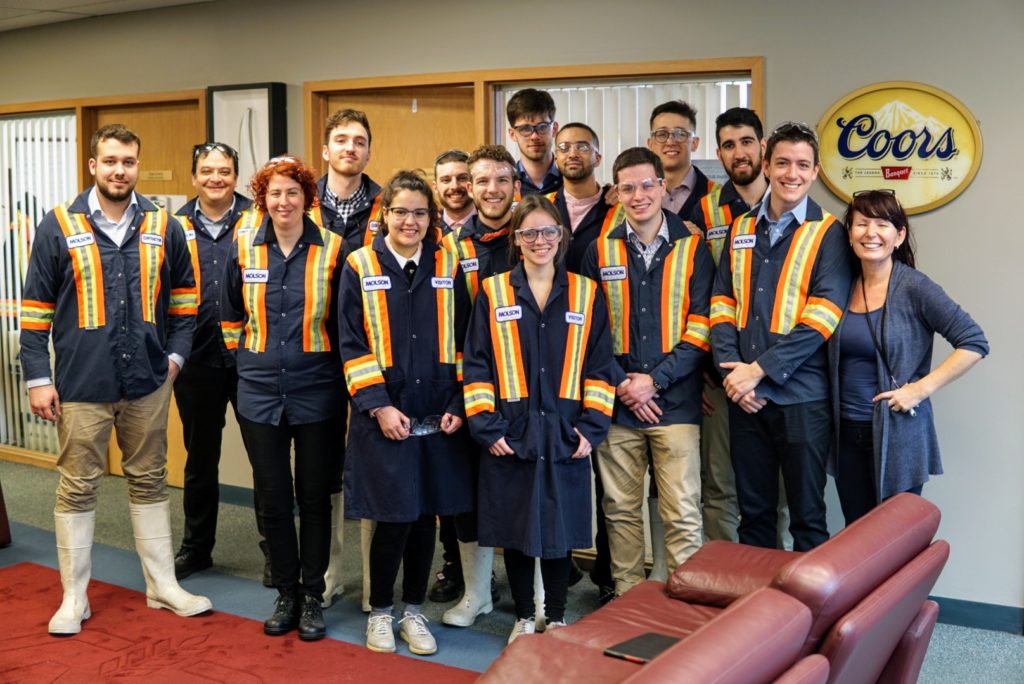For the thirst for knowledge!
Our second stop took us inside the Molson Coors brewery in Vancouver. It is one of many breweries owned by the company across the country, the main ones being in Toronto and Montreal.
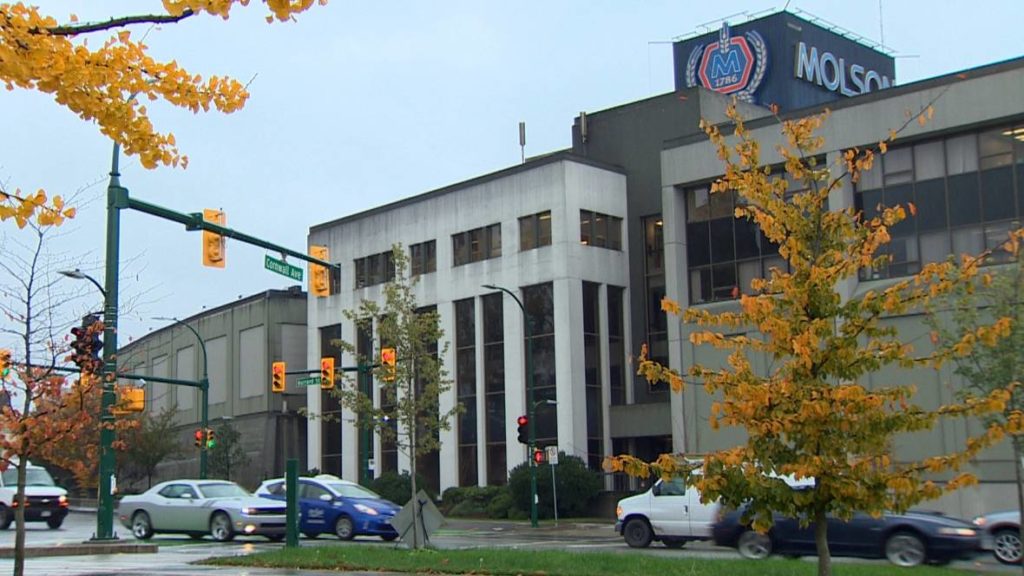
The theme of this visit: how to brew beer!
We had the chance to meet the engineering director, Jay Alcock, who took the time to answer our questions and he showed us around the production floor.
A complex and rigorous process
Many steps are necessary to guarantee the preservation and quality of the beer. The illustration below presents them in a simplified way. It all starts with mixing the malt with very hot water in order to release fermentable sugars.
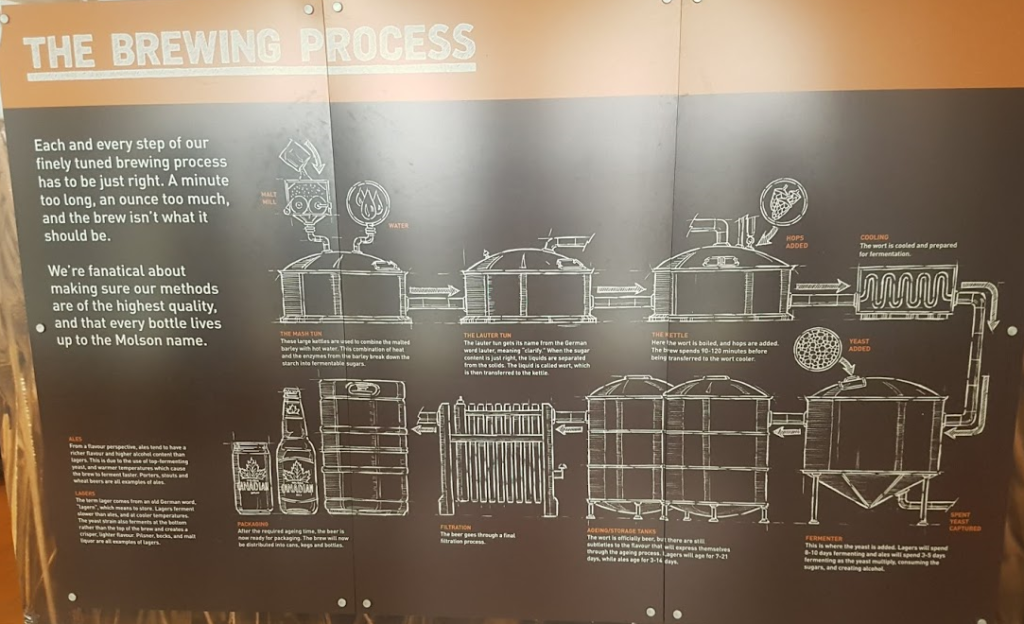
Then comes a clarification process, in which the liquid (must) is separated from the solids and transferred for the third step. Hops are added to the wort at this stage. The whole mix is brought to a boil, then cooled to pass to the 4th stage.
Yeasts are added in the 4th stage, the fermentation. Depending on the type of beer desired, the mixture ferments between 3 to 10 days, during which the yeasts multiply, and create alcohol from the sugar consumed.
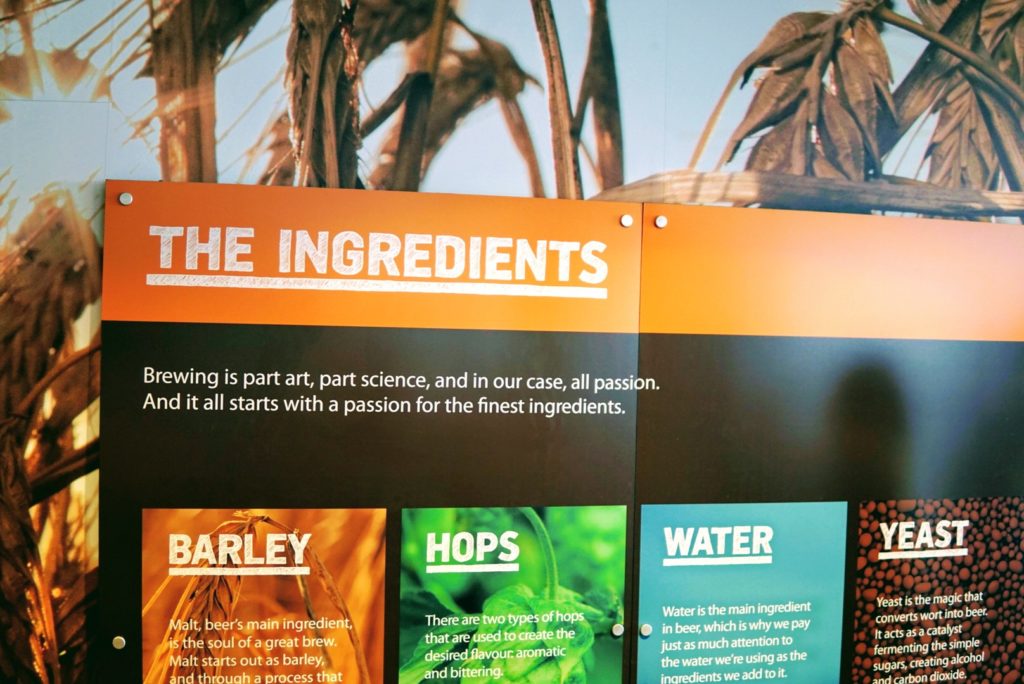
Finally, after a certain period of storage of the beer during which it is aged, a final filtration takes place before final packaging in bottle or can.
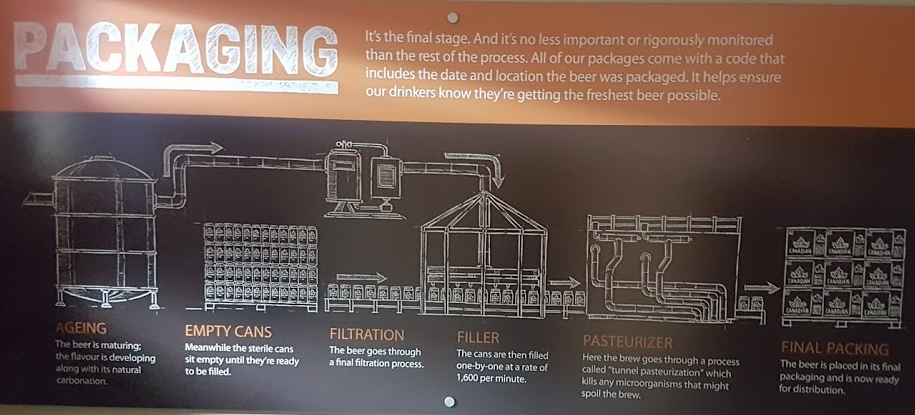
A compromise between productivity and sustainability
Of the four main ingredients needed for brewing, water is found in greater volume. It is this key ingredient that has piqued our curiosity and allowed us to learn more about brewing and the brewery’s sustainable development initiatives.
Molson Coors Vancouver is soon moving from its downtown location to north Vancouver in the city of Chilliwack. Thanks to this move, the brewery succeeded in improving the efficiency of its facilities and reducing its water consumption. Indeed, the current plant consumes 5 litres of water to produce 1 litre of beer. The target for the new brewery will be 3 litres of water for 1 litre of beer. The new plant will be feature a more efficient approach in terms of sustainability, economic and logistical . It’s not easy to have a downtown distribution centre in one of Canada’s largest city !
Green initiatives undertaken by Molson Coors Vancouver include CO2 recovery projects during brewing, heat recovery at several locations in the process and used grain recovery.
A choice of double-edged materials
One of the questions we asked in our discussion with Jay was what would become bottles and cans to hold beer. The latter shared a rather mixed opinion of the situation.
Indeed, although the bottle is still considered as a more « humble » material than the can, and that this one can be recycled about ten times, it remains that it is less and less used and accepted in the public places, and that the related production costs are higher than the use of the cans. Therefore a medium- to long-term risk of companies turning away from the bottle, which would result in the loss of many jobs.
We thank Giselle Allard for helping us plan this visit and Jay for his very relevant explanations!
